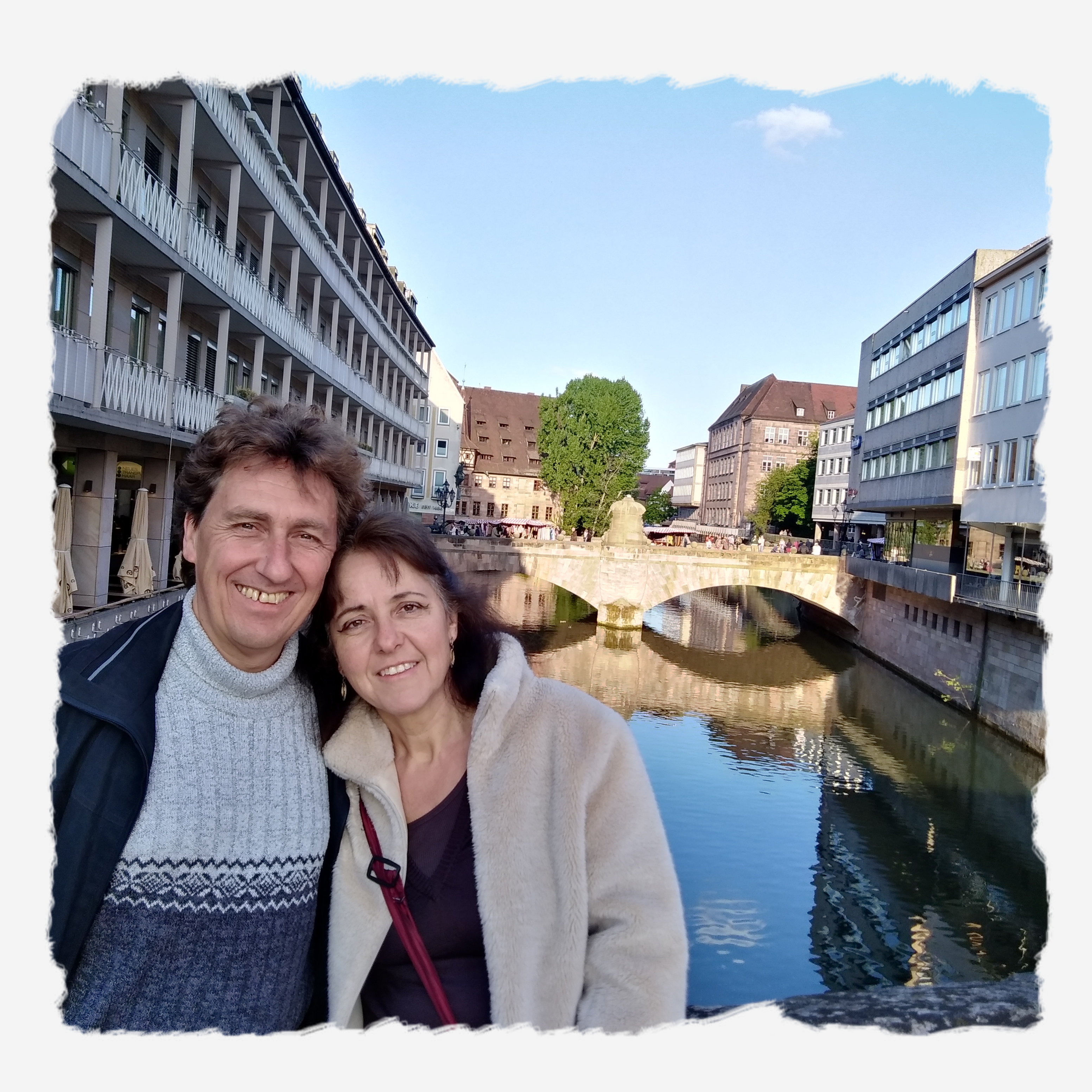Das hier ist dein Text, hier kannst du deine Verkaufsargumente platzieren oder andere wichtige Informationen mit deinen Interessenten teilen.
Make your appointment now
In today's fast-paced world, where work demands, social commitments, and technological distractions are ever-present, maintaining a healthy relationship can be challenging.
Infidelity affects both partners in profound ways. The initial discovery often leads to a whirlwind of emotions including anger, guilt, shame, and grief. Both partners may experience these emotions at different times and intensities.
The emotional turmoil following infidelity can be overwhelming. Anger often surfaces as a primary response, but beneath it may lie a deep sense of betrayal and sadness. The betrayed partner may question their worth and the reality of the relationship, while the partner who cheated might grapple with guilt and shame.
The psychological impact of infidelity can be long-lasting. Trust, once broken, can be difficult to restore, leading to feelings of insecurity and anxiety in the relationship. The emotional scars can manifest in different ways, impacting one's mental health and outlook on future relationships.
Beyond the couple, infidelity can affect family dynamics and social circles. Friends and family may choose sides, and children, if involved, can experience confusion and stress. Understanding the broader impact can help couples address these issues and work towards healing.

Just as every relationship is unique, the recovery process will vary for each couple. However, there are common stages of healing from infidelity that many couples experience.
The first stage involves acknowledging that the affair happened and accepting the reality of the situation. This step is crucial for both partners. The partner who cheated must take responsibility for their actions, while the betrayed partner must accept their feelings and the situation.
Embracing the reality of the affair is a painful yet necessary step. Both partners must confront the truth of the situation, which can be a difficult process. Avoiding denial and facing the facts head-on is the foundation for genuine healing.
For the partner who cheated, accepting full responsibility is crucial. This involves not only admitting the affair but understanding its impact on their partner and the relationship. An honest acknowledgment of their actions is essential for rebuilding trust.
Both partners must process their emotions during this stage. This can involve expressing feelings of hurt, anger, and confusion in a constructive way. Journaling, talking to friends, or speaking with a therapist can aid in this emotional processing.
Effective communication is vital in the healing process. Both partners should be willing to express their feelings and listen to each other without judgment. It's important to create a safe space where both individuals feel heard and understood.
A safe space for communication is essential for healing. This means fostering an environment where both partners can express their thoughts and emotions without fear of judgment or retaliation. Setting aside dedicated time for open discussions can be beneficial.
Active listening is a critical component of open communication. This involves truly hearing what the other person is saying and showing empathy towards their feelings. Both partners should practice listening without interrupting, which can help in understanding each other's perspectives.
Discussing needs and boundaries is necessary for both partners. This can involve talking about what each person requires for comfort and security moving forward. Establishing clear boundaries can prevent misunderstandings and support the rebuilding of trust.
Sometimes, couples may find it challenging to navigate the recovery process on their own. Seeking the guidance of a therapist or counselor who specializes in infidelity recovery can provide valuable support and tools for healing.
Therapy can offer a structured environment for healing. A trained therapist can help identify underlying issues and provide strategies to address them. Couples therapy can facilitate constructive dialogue and guide partners towards understanding and empathy.
Finding the right therapist is crucial for effective recovery. Couples should look for a professional who specializes in infidelity and relationship healing. Checking credentials and ensuring that both partners feel comfortable with the therapist is essential.
In addition to individual or couples therapy, group therapy can be beneficial. Sharing experiences with others who have gone through similar situations can provide support and perspective. Group settings can offer a sense of community and shared understanding.
Rebuilding trust is perhaps the most challenging stage of infidelity recovery. It requires patience, consistency, and transparency. The partner who cheated must be willing to demonstrate trustworthy behavior consistently, while the betrayed partner needs time to see these changes and rebuild trust gradually.
The partner who cheated must actively work to rebuild trust through their actions. This involves being consistent in their behavior, keeping promises, and being transparent about their whereabouts and activities. Trust is rebuilt over time through reliable actions.
Rebuilding trust requires patience from both partners. The betrayed partner needs time to see changes and feel secure again, while the partner who cheated must remain patient and understanding of their partner's feelings. Perseverance is key in this stage.
Transparency is crucial in rebuilding trust. The partner who cheated should be willing to answer questions and be accountable for their actions. This openness can help reassure the betrayed partner and demonstrate a commitment to change.
Forgiveness is a personal journey and may take time. It's essential for the healing process but does not mean forgetting or excusing the affair. Rather, it involves letting go of resentment and choosing to move forward in the relationship.
Forgiveness is not about excusing the affair but about releasing the hold that anger and resentment have over the betrayed partner. It is a personal decision that can lead to emotional freedom and healing for both individuals.
The path to forgiveness is unique for each person. It involves processing emotions, reflecting on the relationship, and deciding to let go of past grievances. This journey can be supported through therapy, self-reflection, and open communication with the partner.
Once forgiveness is achieved, both partners can begin to move forward. This involves focusing on rebuilding the relationship and creating a new, healthier dynamic. Letting go of past hurts allows for a fresh start and a renewed commitment to each other.
Healing a relationship after infidelity involves a conscious effort from both partners. Here are practical steps to help you recover from an affair:
Recovery after infidelity in marriage is not a quick process. It's important to allow yourself and your partner the time needed to heal. Rushing the process can lead to unresolved feelings and hinder progress.
Patience is critical during the healing process. Both partners must understand that recovery takes time and cannot be rushed. Allowing emotions to surface and addressing them at a natural pace is vital for genuine healing.
Sometimes, taking space can be beneficial for healing. This might mean spending time apart to reflect and process emotions individually. Space can provide clarity and help each partner come back to the relationship with a fresh perspective.
Acknowledging small milestones in the recovery journey is important. Celebrating progress, no matter how small, can motivate both partners to continue working towards healing. These milestones can be emotional breakthroughs or moments of reconnection.
Honesty is crucial in rebuilding trust. The partner who cheated should be open about their actions and willing to answer questions from the betrayed partner. Transparency helps in rebuilding trust and shows a commitment to the relationship.
The partner who cheated should be willing to admit the details of the affair. This honesty is challenging but necessary for the betrayed partner to understand the full scope of the situation. Open admission is a step towards rebuilding trust.
Answering questions from the betrayed partner is part of transparency. The partner who cheated should be patient and open to providing explanations without defensiveness. This openness can help the betrayed partner process the affair and move forward.
Both partners should commit to honesty moving forward. This involves being truthful about feelings, needs, and any potential issues. A commitment to honesty can foster a healthier relationship and prevent future misunderstandings.
Setting boundaries can help both partners feel safe and respected. Discuss what behaviors are acceptable and what are not. Boundaries create a sense of security and prevent future misunderstandings.
Couples should have open discussions about boundaries. This can involve talking about what is acceptable in terms of communication, social interactions, and personal space. Clear boundaries provide a framework for rebuilding trust.
Once boundaries are set, it's crucial for both partners to respect them. This respect demonstrates a commitment to the relationship and the healing process. Violating boundaries can hinder progress and damage trust further.
As the relationship heals, revisiting and adjusting boundaries may be necessary. Both partners should be open to discussing changes as they occur. Flexibility in adapting to each other's needs can support ongoing recovery.
Both partners should prioritize self-care during the recovery process. Engaging in activities that promote physical, emotional, and mental well-being can help manage stress and improve overall health.
Physical self-care involves engaging in activities that promote physical health. This can include exercise, proper nutrition, and getting enough rest. Physical well-being can support emotional recovery and stress management.
Emotional self-care is about nurturing your emotional health. This can involve journaling, meditation, or speaking with a therapist. Taking time to process emotions and seek support is crucial for healing.
Maintaining mental well-being is important during recovery. Engaging in activities that stimulate the mind, such as reading or learning new skills, can provide a positive outlet. Mental self-care can aid in managing stress and maintaining a healthy outlook.
As you work through infidelity, find ways to reconnect with your partner. Spend quality time together, engage in activities you both enjoy, and focus on rebuilding the emotional connection that may have been lost.
Spending quality time together can help rebuild the emotional connection. This can involve going on dates, enjoying shared hobbies, or simply spending quiet time together. Prioritizing time as a couple can strengthen the bond.
Rediscovering shared interests can reignite the connection between partners. This can involve trying new activities together or revisiting hobbies that were once enjoyed. Shared experiences can create new memories and strengthen the relationship.
Emotional intimacy is crucial for a healthy relationship. This involves being open about feelings, sharing thoughts, and supporting each other emotionally. Building emotional intimacy can help restore the closeness that may have been lost.
If you are the partner who cheated, helping your spouse recover is a crucial part of the healing process. Here are some ways to support them:
Understand your partner's pain and offer genuine empathy. Acknowledge their feelings and let them know you are there for them.
Understanding the depth of your partner's pain is essential. This involves listening to their feelings and acknowledging the hurt caused by the affair. Showing empathy can help your partner feel supported and understood.
Offering emotional support means being there for your partner during difficult times. This can involve comforting them, listening without judgment, and offering reassurance. Emotional support can aid in their healing process.
Validating your partner's feelings is crucial. This involves acknowledging their emotions and not dismissing their experiences. Validating their feelings can help your partner feel heard and respected.
Healing takes time, and your partner may experience a range of emotions. Be patient and supportive as they work through their feelings.
Allow your partner to express their emotions without rushing them. This involves listening to their feelings of anger, sadness, and confusion without trying to hurry the healing process. Patience is key to supporting their recovery.
Understand that emotions may fluctuate throughout the healing process. Your partner may have good days and challenging days. Recognizing these fluctuations and offering consistent support can aid in their recovery.
Providing consistent support means being there for your partner, regardless of the ups and downs. This involves offering reassurance and understanding, even when the healing process seems slow or difficult.
Reassure your partner of your commitment to the relationship and your willingness to make amends.
Demonstrating your commitment involves taking concrete actions to show your dedication to the relationship. This can include being transparent, following through on promises, and actively participating in the healing process.
Making amends involves taking responsibility for your actions and working to repair the relationship. This can mean making lifestyle changes, addressing underlying issues, and showing a genuine willingness to change.
Focusing on the future involves setting goals for the relationship and working towards them together. This can include discussing shared aspirations, planning activities, and envisioning a healthier, more fulfilling partnership.
Recovery from infidelity is possible, and many couples emerge stronger and more connected after working through an affair. It requires dedication, honesty, and a willingness to address underlying issues in the relationship.
Remember that healing after cheating is a journey, not a destination. Each step you take together brings you closer to rebuilding trust and creating a healthier, more resilient relationship.
Navigating the challenges of recovery together can strengthen the relationship. This involves supporting each other through difficult times and celebrating successes along the way. Facing challenges as a team can foster a deeper bond.
Working through infidelity can lead to a stronger relationship foundation. By addressing issues, improving communication, and rebuilding trust, couples can create a more resilient and fulfilling partnership.
Celebrate the growth and progress made in the relationship. Recognizing how far you’ve come as a couple can motivate you to continue working towards a healthier, happier future together.
In conclusion, while the path to recovery after infidelity may be challenging, it is achievable with mutual effort and understanding. Whether it's through open communication, seeking professional help, or focusing on rebuilding trust, each step contributes to healing and moving forward together.
By embracing the process and supporting each other, you can overcome the challenges of infidelity and build a stronger, more fulfilling relationship.
Make your appointment now
We take only 5 couples with us
Reserve your spot now!
Over the years, the infatuation often gives way to living side by side as partners. In everyday life with children, a career and different leisure activities, you lose the connection.


Susana and Markus Kessler have been in a happy relationship for more than 25 years. To ensure that their partnership continues to grow, they have repeatedly attended coaching and training sessions on all aspects of their relationship, including communication, money management, and parenting.
A particularly meaningful chapter in their lives was raising two severely traumatized foster children. This journey required extraordinary patience, resilience, and dedication. Through love, understanding, and the knowledge they gained from their own personal development, they were able to provide a nurturing and supportive environment for their foster children to heal and grow. This life-changing experience further deepened their empathy and strengthened their ability to help others facing challenges in their relationships and lives.
They have built up several businesses and have become financially free as a result. They have also attended countless coaching and training sessions for their business on sales, marketing, social media, business development, and investing.
They have been trained coaches since 2015 and are passionate about passing on their knowledge. Their coaching approach is practical, solution-oriented, and individually tailored to the needs of their clients. They offer comprehensive support in the areas of personal development, relationship building and maintenance, financial education, and entrepreneurial growth.
Susana and Markus offer various coaching formats to ensure maximum flexibility for their clients. These include:
With their many years of experience, in-depth knowledge, and the invaluable lessons learned from raising foster children, Susana and Markus Kessler help people to strengthen their relationships and make the most of their lives and opportunities.

Our knowledge comes from 25 years of relationship experience as well as training and further education with the world's best in their field, including the NLP Academy Switzerland, J.T. Foxx, T. Harv Eker, Landmark Wordwide, John Kehoe, Maja Storch and many more.

Every partnership is different. We recognize your individual personalities and work with your own resources to support you perfectly on your path to the perfect partnership.

Anyone who talks about their relationship deserves absolute discretion and an atmosphere of trust. That's why we offer you an empathic environment in which you feel safe and secure and can speak openly with each other.